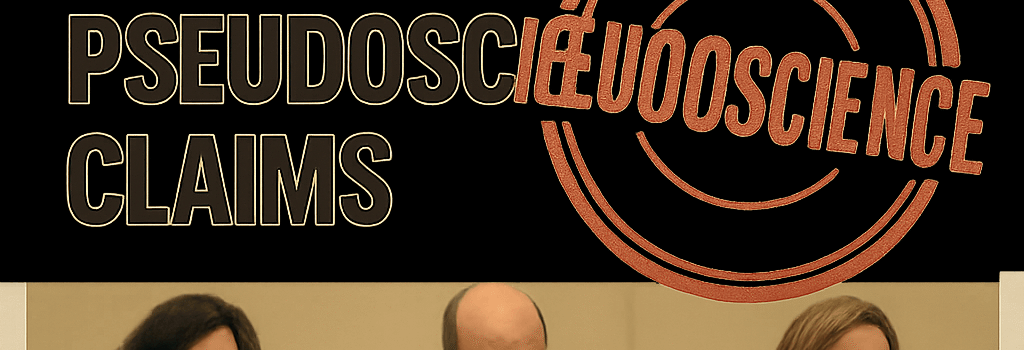Calls to Overhaul CDC Vaccine Panel Amid Pseudoscience Claims

As Health and Human Services Secretary Robert F. Kennedy Jr. moves forward with a contentious reshaping of the Centers for Disease Control and Prevention’s Advisory Committee on Immunization Practices (ACIP), lawmakers, public health experts, and consumer advocates are demanding an immediate pause and comprehensive reform. Critics warn that the sudden purge of 17 veteran scientists and the appointment of eight anti-vaccine or minimally qualified members threaten to undermine decades of evidence-based vaccine policy.
Background: ACIP’s Critical Role in U.S. Immunization Policy
The ACIP, established under the Federal Advisory Committee Act (FACA), advises the CDC on vaccine schedules, safety monitoring, and recommendations for populations ranging from infants to seniors. By law, the panel must include experts in epidemiology, immunology, infectious diseases, behavioral science, and biostatistics. Over its 50-year history, ACIP has evaluated risks and benefits of vaccines such as MMR, polio, HPV, and the recent mRNA-based COVID-19 vaccines, translating complex clinical trial data and real-world surveillance into national immunization schedules.
June 2025 Shake-Up and Controversial Appointments
On June 9, 2025, Secretary Kennedy abruptly dismissed all 17 existing ACIP members—whose terms typically undergo a two-year vetting process involving the Office of Personnel Management and the CDC director—and announced eight replacements within 48 hours. The new roster includes known anti-vaccine activists, individuals with no formal training in microbiology or immunology, and representatives of Kennedy’s own organization, Children’s Health Defense.
“The reconstituted ACIP is a farce,” said Robert Steinbrook, director at Public Citizen. “This meeting should be rescheduled after a qualified CDC director is in place to restore public confidence.”
Technical Considerations for mRNA and Adjuvanted Vaccines
Several of the ousted ACIP members were leading authorities on lipid nanoparticle (LNP) delivery systems critical for mRNA vaccines. These platforms rely on ionizable lipids, polyethylene glycol (PEG) conjugates, and microfluidic mixing to encapsulate mRNA strands encoding viral antigens. Recent phase III and real-world studies demonstrate 90–95% efficacy against symptomatic disease for SARS-CoV-2 variants and robust T-cell responses measured by ELISPOT assays. Yet the new agenda emphasizes unfounded debates over thimerosal and measles vaccine formulations, areas devoid of current scientific controversy.
Regulatory and Legal Framework
Under FACA, ACIP recommendations must be transparently developed through public meetings, published in the Federal Register, and subject to peer review. The Council of the Inspectors General on Integrity and Efficiency (CIGIE) has been asked to investigate whether the rapid turnover complied with federal procurement and conflict-of-interest rules. Additionally, the Government Accountability Office (GAO) opened an oversight inquiry on June 30, examining whether HHS followed standard selection criteria and vetting procedures.
Impact on Public Health and Vaccine Confidence
Public polling from the Kaiser Family Foundation indicates that vaccine confidence has already dipped from 72% in early 2025 to 64% by July. Epidemiological models from Johns Hopkins University project that a 5% decline in childhood vaccination rates could result in 15,000 additional cases of measles and 3,000 of pertussis over the next two years. The World Health Organization has flagged the situation as a potential driver of international outbreaks, especially in regions with weaker immunization infrastructure.
Ongoing Oversight and Next Steps
Senator Bill Cassidy (R-LA), a medical doctor who supported Kennedy’s confirmation, publicly called for the ACIP meeting to be delayed until the Senate confirms a new CDC director empowered to appoint a balanced committee. A bipartisan Senate Resolution 412 is expected to be filed this week, urging HHS to restore scientific criteria for ACIP vacancies. Meanwhile, the House Energy and Commerce Committee has scheduled a July 15 hearing to question HHS officials on the shake-up and its compliance with federal statutes.
Expert Opinions
- Peter Hotez, Dean of Baylor College of Medicine: “In its current form, ACIP lacks meaningful expertise and is organized to pursue a pseudoscience agenda. Taxpayer dollars are at risk.”
- Fiona Havers, former CDC vaccine expert: “The process has been corrupted in ways I’ve never seen. Without reversal, preventable outbreaks will follow.”
- Robert Steinbrook, Public Citizen: “Delay the meeting, reconvene under proper leadership, and restore public trust in vaccine science.”
Conclusion
The unprecedented overhaul of ACIP raises serious questions about scientific integrity, public health policy, and regulatory compliance. With federal investigations underway and bipartisan scrutiny intensifying, the future of U.S. vaccine recommendations hangs in the balance. Restoring ACIP’s credibility will require transparent vetting, qualified leadership at the CDC, and adherence to established advisory procedures.